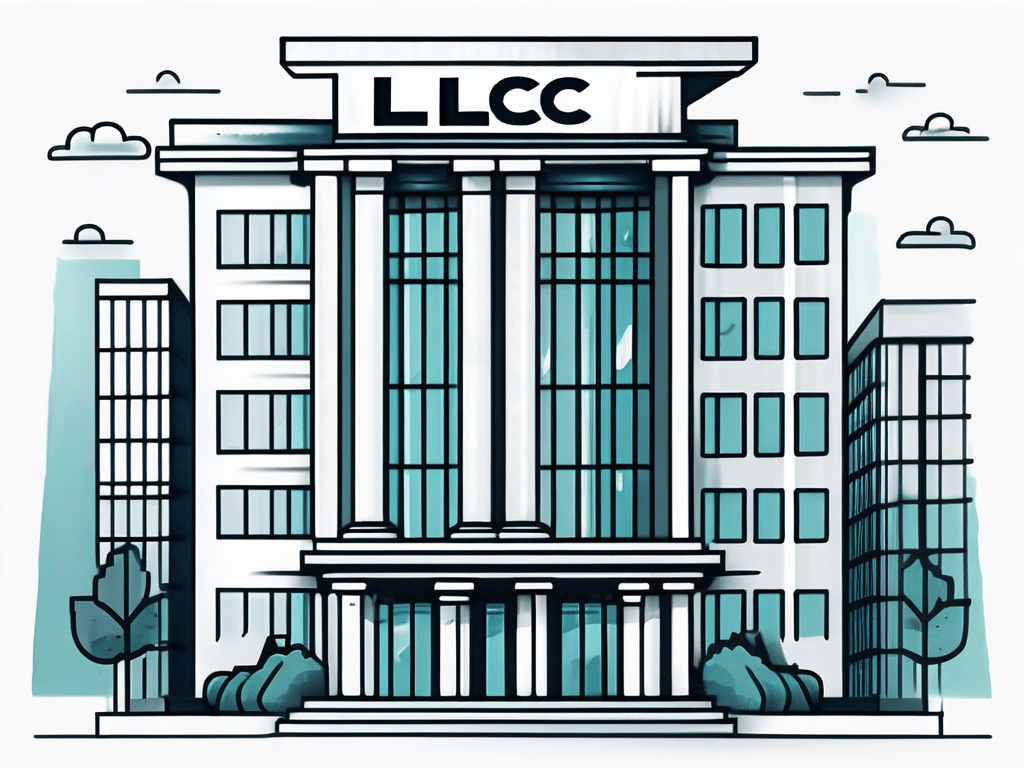In today’s business landscape, understanding the intricacies of LLC and corporate formation documents is a vital step towards establishing a successful enterprise. Whether you are venturing into the world of entrepreneurship for the first time or seeking to expand your existing business, having a solid foundation in business structures and formation documents is crucial. This comprehensive guide will provide you with a 101 overview of LLC and corporate formation documents, shedding light on their significance and key components.
Understanding Business Structures: LLC vs Corporation
Before diving into the specifics of formation documents, it is essential to understand the fundamental differences between an LLC and a corporation. These two popular business structures have distinct characteristics that influence factors such as taxation, liability, and management.

When choosing between an LLC and a corporation, it is crucial to consider the level of formality and complexity you are comfortable with. LLCs are known for their flexibility and simplicity in terms of management and operational requirements. They are ideal for small businesses and startups looking for a streamlined structure with fewer compliance obligations.
Defining an LLC
LLC stands for Limited Liability Company. It offers business owners the advantage of limited liability protection similar to that of a corporation while allowing for flexibility in management and tax treatment. In an LLC, owners are referred to as members, and their personal assets are shielded from business liabilities.
Additionally, LLCs offer pass-through taxation, meaning that the business itself is not taxed. Instead, profits and losses are passed through to the members, who report them on their individual tax returns. This can result in tax savings for some businesses, especially those in the early stages of operation.
Defining a Corporation
A corporation, on the other hand, is a legal entity that is separate from its owners or shareholders. The primary advantage of a corporation is the ability to raise capital through the issuance of stock. While it provides limited liability protection to its shareholders, corporations are subject to more extensive legal requirements and taxation.
Corporations are required to hold annual meetings, keep detailed records, and adhere to specific reporting and compliance standards. This level of formality can be attractive to businesses seeking a structured environment and clear corporate governance. However, it also means increased administrative responsibilities and potential costs associated with meeting regulatory requirements.
The Importance of Formation Documents in Business
Now that we have a clear understanding of the difference between LLCs and corporations, let’s explore the vital role that formation documents play in establishing and running a business.
When delving into the realm of formation documents, it’s essential to grasp the intricate details that go into crafting these foundational pieces. These documents are not just bureaucratic paperwork; they are the building blocks upon which your business’s legal framework is constructed.
Legal Protection and Compliance
One of the fundamental reasons to prepare and file formation documents is to protect your personal assets and ensure legal compliance. These documents serve as a legal shield by clearly defining the structure of your business and its operations.
Moreover, the meticulous attention to detail required in drafting these documents ensures that your business is in full compliance with state regulations and statutes. This compliance not only safeguards your personal assets but also instills trust and credibility among potential partners and investors.
By having a well-drafted and properly filed formation document, business owners can mitigate personal liability in the event of legal disputes, accidents, or other unforeseen circumstances.
Establishing Business Identity
Formation documents also play a crucial role in establishing the identity of your business. They serve as official proof of existence and cement your business’s legal standing. Additionally, having formation documents in place allows stakeholders, clients, and potential investors to confidently engage with your business.
Furthermore, these foundational documents provide a roadmap for the future trajectory of your business. They outline the rights and responsibilities of each stakeholder, delineate decision-making processes, and establish a framework for resolving conflicts. In essence, formation documents serve as the cornerstone upon which a successful and sustainable business can be built.
These documents act as a gateway for your business to enter into contracts, open bank accounts, and conduct various operations necessary for growth and success.
Key Components of LLC Formation Documents
Now that we understand the importance of formation documents, it is essential to familiarize ourselves with their key components specific to Limited Liability Companies.
When establishing a Limited Liability Company (LLC), there are several crucial documents that play a significant role in defining the structure and operations of the business. These documents not only provide a legal framework for the LLC but also help in establishing clarity and transparency among the members and stakeholders.
Articles of Organization
The Articles of Organization are the foundational document of an LLC. They outline essential information about the business, including its name, purpose, address, and management structure. This document is typically filed with the Secretary of State or another state agency.
Additionally, the Articles of Organization may also include details about the duration of the LLC, the registered agent appointed to receive legal documents on behalf of the company, and any specific provisions related to the management or operation of the business. This document serves as a public record that officially establishes the existence of the LLC and sets forth its basic information for regulatory and compliance purposes.
Operating Agreement
The Operating Agreement is an internal document that sets out the ownership structure, management responsibilities, and financial matters of the LLC. While this document is not always required by law, having one in place is highly recommended to establish clear guidelines and avoid potential disputes among members.
Moreover, the Operating Agreement can address various important aspects of the LLC, such as the process for admitting new members, the distribution of profits and losses, voting rights, and procedures for decision-making within the company. By clearly defining these operational details in the Operating Agreement, the LLC can mitigate misunderstandings and conflicts that may arise during the course of business operations.
Essential Elements of Corporate Formation Documents
In addition to LLC formation documents, it’s important to explore the key components of corporate formation documents.

When delving into the realm of corporate formation, it is crucial to understand the intricate details that constitute the foundation of a corporation. Beyond the surface level, there are essential elements that shape the identity and functionality of a corporate entity, ensuring its legal standing and operational efficiency.
Articles of Incorporation
The Articles of Incorporation, also known as the Corporate Charter, formalize the creation of a corporation. This document includes vital information such as the corporation’s name, location, registered agent, and capital structure, as well as outlining the purpose of the corporation’s existence.
Moreover, the Articles of Incorporation serve as a declaration of the corporation’s commitment to adhering to legal requirements and fulfilling its obligations to stakeholders. It acts as a beacon of transparency, providing a clear roadmap for the corporation’s trajectory and objectives, guiding its actions and decisions in the business landscape.
Bylaws
Bylaws are internal documents that outline the rules and procedures governing a corporation’s operations, including the roles of directors and officers, shareholder meetings, voting procedures, and financial matters. Bylaws provide a framework that ensures transparency, accountability, and regulatory compliance within the corporation.
Furthermore, Bylaws serve as a cornerstone of corporate governance, establishing a system of checks and balances that safeguard the interests of all parties involved. They not only define the rights and responsibilities of key stakeholders but also set the standards for ethical conduct and operational protocols, fostering a culture of integrity and professionalism within the corporate environment.
The Process of Filing Formation Documents
Having covered the crucial elements of LLC and corporate formation documents, let’s now explore the process of filing these documents.

Steps to File LLC Formation Documents
1. Research the specific requirements of your state regarding LLC formation. Each state has unique regulations and filing fees.2. Choose a unique name for your LLC that complies with state regulations.3. Prepare the Articles of Organization, ensuring all required information is included.4. File the Articles of Organization with the appropriate state agency, typically the Secretary of State.5. Pay the required filing fees.6. Obtain any necessary business licenses or permits as required by your state or local authorities.
Steps to File Corporate Formation Documents
1. Research the specific requirements of your state for incorporating a corporation, including filing fees and processes.2. Select a unique name for your corporation that adheres to state regulations.3. Draft the Articles of Incorporation, ensuring all necessary information is included.4. File the Articles of Incorporation with the appropriate state agency, often the Secretary of State.5. Pay the requisite filing fees.6. Develop and adopt bylaws to govern the internal operations of your corporation.7. Obtain any required business licenses or permits.
By following these steps and having a thorough understanding of the relevant formation documents, aspiring business owners can confidently navigate the process of establishing their LLC or corporation.
In conclusion, LLC and corporate formation documents serve as the building blocks for any successful business venture. They provide legal protection, establish business identity, and ensure regulatory compliance. By familiarizing yourself with key components such as articles of organization, operating agreements, articles of incorporation, and bylaws, you can set your business on a path to long-term success. Remember, always consult with legal professionals or business advisors to ensure compliance with the laws and regulations governing your specific state or jurisdiction


